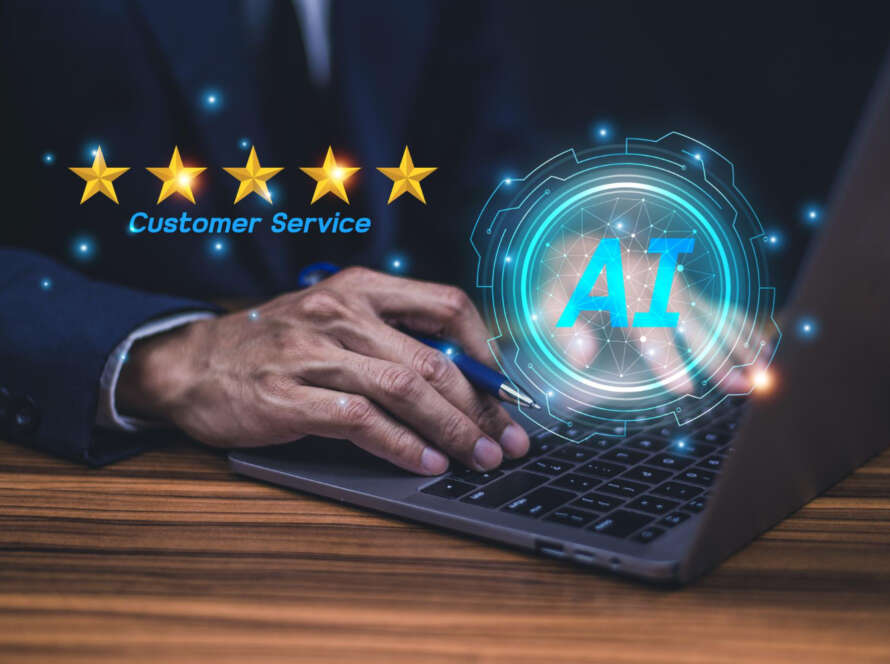Content marketing is all about engaging with our audience in meaningful ways. Today, we can leverage artificial intelligence (AI) to elevate our content marketing efforts, making them more efficient and effective. AI helps us understand our audience better, personalise content, and optimise our strategies to boost engagement.
AI allows us to analyse vast amounts of data quickly, giving us insights into what our audience likes, shares, and comments on. This helps us create content that resonates more with them. When we understand our audience’s preferences, we can tailor our messaging to match their interests, increasing the likelihood of engagement.
Moreover, AI can automate many of the repetitive tasks involved in content creation and distribution. This frees up time for us to focus on creativity and strategy. By using AI to streamline these processes, we can ensure our content reaches the right people at the right time. This targeted approach maximises the chances of our content being seen and interacted with, leading to higher engagement rates.
In this article, we will explore how AI is transforming content marketing and the various tools and strategies that can help us enhance our engagement with our audience. AI is not just a trend but a valuable asset, and incorporating it into our content marketing can provide significant benefits.
Understanding the Role of AI in Content Marketing
AI is revolutionising content marketing by making it more data-driven and efficient. One of the primary roles of AI is to analyse vast amounts of data to provide insights that would be impossible for humans to glean on their own. AI algorithms can look at patterns in content consumption, user behaviour, and engagement metrics, giving us a deeper understanding of what resonates with our audience. With this knowledge, we can create and distribute content that is more likely to capture our audience’s interest.
AI also plays a crucial role in personalising content. By understanding individual user preferences, AI can help us deliver tailored content experiences. For example, AI can recommend articles, videos, or social media posts to users based on their past behaviour and interests. This level of personalisation ensures that the content we deliver is relevant, which increases the likelihood of engagement and interaction.
Furthermore, AI is instrumental in automating repetitive tasks, such as content scheduling and distribution. Automation tools powered by AI can manage posting schedules, choose optimal times for publishing, and even select the most effective channels for content distribution. By automating these tasks, we free up time to focus on strategy and creativity, ensuring that our content marketing efforts are both innovative and effective.
Key AI Tools for Enhancing Content Engagement
Several AI tools can significantly boost content engagement by helping us understand and connect with our audience more effectively. Here are some of the most impactful AI tools for enhancing content engagement:
1. Natural Language Processing (NLP): NLP enables us to understand and analyse text data. It can help us gauge the sentiment of our audience by analysing comments, reviews, and social media interactions. This insight allows us to create more engaging and relevant content.
2. Predictive Analytics: This tool uses historical data to predict future trends and behaviours. By understanding what content is likely to be popular, we can create and distribute material that aligns with emerging trends, keeping our audience engaged.
3. Recommendation Engines: These engines analyse user behaviour to suggest content that individual users are likely to find interesting. By providing personalised recommendations, we can increase the chances of our audience engaging with our content.
4. Chatbots: AI-powered chatbots can engage users in real-time, answering questions, providing recommendations, and guiding them through our content. This interactive element can enhance user experience and boost engagement.
5. Content Generation Tools: These AI tools can help create content such as articles, reports, or social media posts. By automating the content creation process, we can maintain a consistent posting schedule and keep our audience engaged with fresh content.
By leveraging these AI tools, we can enhance our content marketing strategy, making it more targeted, personalised, and efficient, which ultimately leads to higher engagement rates.
Strategies for Implementing AI in Content Marketing
Effective implementation of AI in content marketing requires a well-thought-out strategy. Here are some key strategies to consider:
1. Audience Segmentation: Use AI to segment your audience based on various factors such as demographics, behaviour, and preferences. This enables us to create highly tailored content for each segment, increasing the relevance and effectiveness of our marketing efforts.
2. Content Personalisation: Leverage AI to personalise content for your audience. AI can help us understand what types of content individuals prefer and deliver customised experiences. This can range from personalised emails to recommendations on our website.
3. Automated Content Scheduling: Use AI automation tools to handle content scheduling and distribution. By analysing the optimal times and channels for posting, these tools ensure that our content reaches the right people at the right time, maximising engagement.
4. Optimisation of Content Performance: AI can continuously monitor content performance and suggest improvements. For example, AI can identify which headlines drive more clicks or which formats generate more engagement, allowing us to tweak our content strategy in real time.
By implementing these strategies, we can harness the full potential of AI in our content marketing efforts, ensuring that our content is both effective and engaging.
Measuring the Success of AI-Driven Content Engagement
To evaluate the success of our AI-driven content engagement, we need to track specific metrics. These key performance indicators (KPIs) help us understand how well our AI strategies are working and where we can make improvements.
1. Engagement Metrics: Monitor metrics such as likes, shares, comments, and time spent on content. High engagement rates indicate that our content resonates with the audience, while low rates may suggest a need for adjustment.
2. Conversion Rates: Track how often viewers of personalised content take desired actions, such as making a purchase or signing up for a newsletter. Increased conversion rates are a strong indicator that our AI efforts are effective.
3. Customer Feedback: Use surveys and feedback tools to gather direct input from your audience. Positive feedback and high satisfaction scores can confirm that our personalised and AI-driven content is hitting the mark.
4. Return on Investment (ROI): Calculate the financial impact of AI implementations by comparing the costs against the revenue generated. A positive ROI confirms that our AI-driven strategies are contributing to business growth.
Regular analysis of these metrics allows us to refine our approach and ensure that our AI initiatives are driving meaningful engagement and results.
Conclusion
AI is transforming content marketing by making it more data-driven, personalised, and efficient. By understanding its role, leveraging key AI tools, and implementing targeted strategies, we can significantly boost engagement with our content. Regularly measuring our success ensures that we remain on the right track and continue to improve.
At Not Just Marketing, we specialise in integrating AI with human creativity to create unparalleled marketing solutions. Ready to revolutionise your content marketing strategy? Contact our AI digital marketing agency today and see how our innovative approaches can boost your engagement and drive your success.



